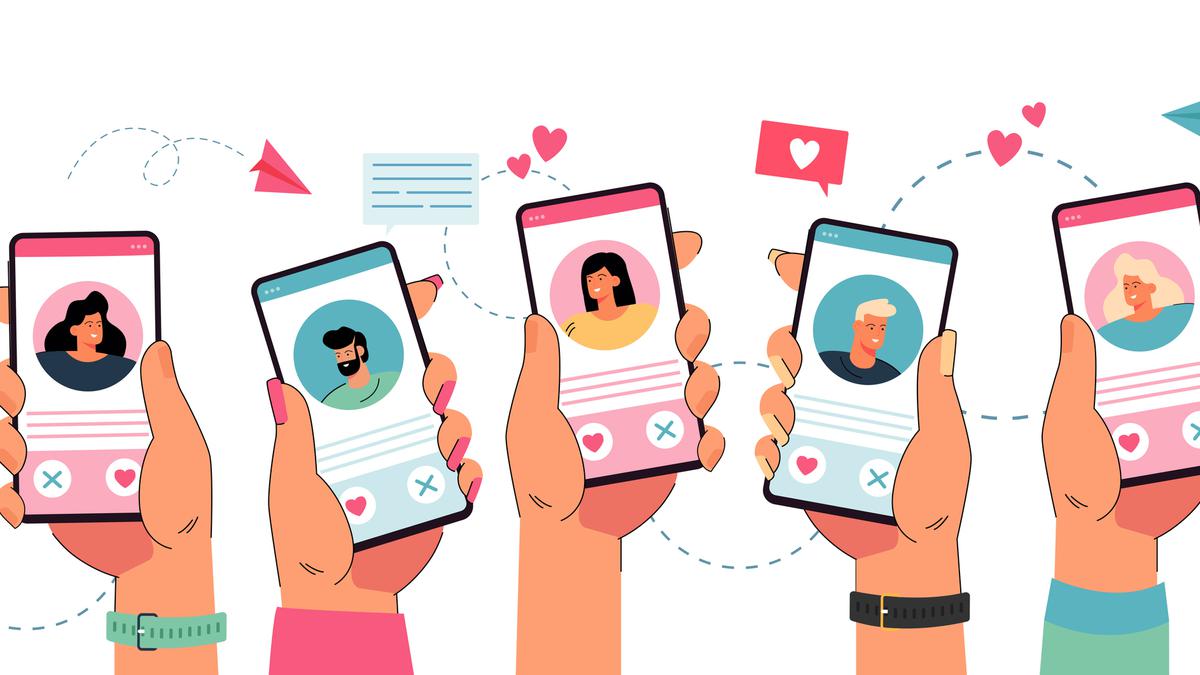
How midlifers are using dating apps to find love
The Hindu
Midlifers are increasingly turning to dating apps to find connections. Platforms like Bumble, Hinge, Tinder provide anonymity and comfort in a society that's not so accepting of older people dating. 'In Real Life' is a platform that hosts curated events for singles, allowing them to make new friends or explore ethical sex-ploration and non-monogamy.
In a recent episode of the podcast If Books Could Kill, the hosts read out the Bumble profile of a 50-year-old gay man. It stated: “Not interested in over 50 or anyone with depression, insomnia or anxiety. I like my high IQ and earning a good salary at what I do, so if you don’t, then we’re not a match. I seek to build a life.” The hosts were trying to illustrate something: how particular people can be on dating apps. And the older you get, the more exacting the criteria; and the harder it is to meet them.
Increasingly, Indians in their 30s to 50s are turning to apps such as Bumble, Hinge, Tinder and others to meet new people. There are many reasons for this: for some, it’s hard to meet another single in their crowd of already married acquaintances; for others, such platforms provide a sense of anonymity that is comforting in a society that’s not so accepting of older people dating.
For Mumbai-based Namrta Sharma, 37, and Vinay Shinde, 43, Bumble was a godsend. Sharma still remembers the first time she saw Shinde’s profile: it was headlined by a black and white picture of him at home in a ganji, with messy hair and zero effort. “Compared to youngsters, who have [filter-perfect] photos, this was raw,” she recalls. Of course, it helped that he was a dad of two. As a newly-divorced mum, this appealed to Sharma.
Right from the start, the two were upfront with each other: each one’s story resonating with the other instead of becoming baggage. That first day they matched, they spent all night chatting. After a week, they met for a first date. Two weeks later, their children met on a play date. In four months, they were living together. And in another four, they were married.
Midlifers have a much stronger sense of self, so when they try dating they are surer of what they don’t want. “You’re not trying to impress a person so much as you’re trying to show them your true self,” says Shinde.
According to Samarpita Samaddar, India Communications Director of Bumble, GenZ are the digital natives and have more awareness and access to the Internet, including dating platforms. But in the last few years, she has seen an increasing number of midlifers finding connections on Bumble. This has inevitably led to greater acceptance. In fact, a recent nationwide study shows 67% are open to dating a divorcee; 69% are open to dating a single parent. This, however, is just half the picture. Tinder’s internal data reveals that 18- to 25-year-olds are 32% less likely to ghost someone than 33+-year-olds. This hints at one of the flip sides of midlife dating: you might know exactly what you want, but that makes you more restrictive.
Bengaluru-based Arpita Ganeshbhas, 46, has never found anyone online. “I was a working professional, so I didn’t have time to swipe, chat, make time to meet somebody and then be disappointed,” she says. In the past, she was part of FLOH, a community of singles that met up every now and again. But their cut-off age was 35, and so she decided to start something of her own. In August this year, she started ‘In Real Life’, a platform that hosts curated events for singles — from cocktail-making sessions to pet breakfasts — that charge between ₹2,000 and ₹6,000. “I didn’t want to make it only dating because then you’re boxing people in. For all you know, I’m single and I just want to make a new set of friends,” says Ganeshbhas.

 Run 3 Space | Play Space Running Game
Run 3 Space | Play Space Running Game Traffic Jam 3D | Online Racing Game
Traffic Jam 3D | Online Racing Game Duck Hunt | Play Old Classic Game
Duck Hunt | Play Old Classic Game











